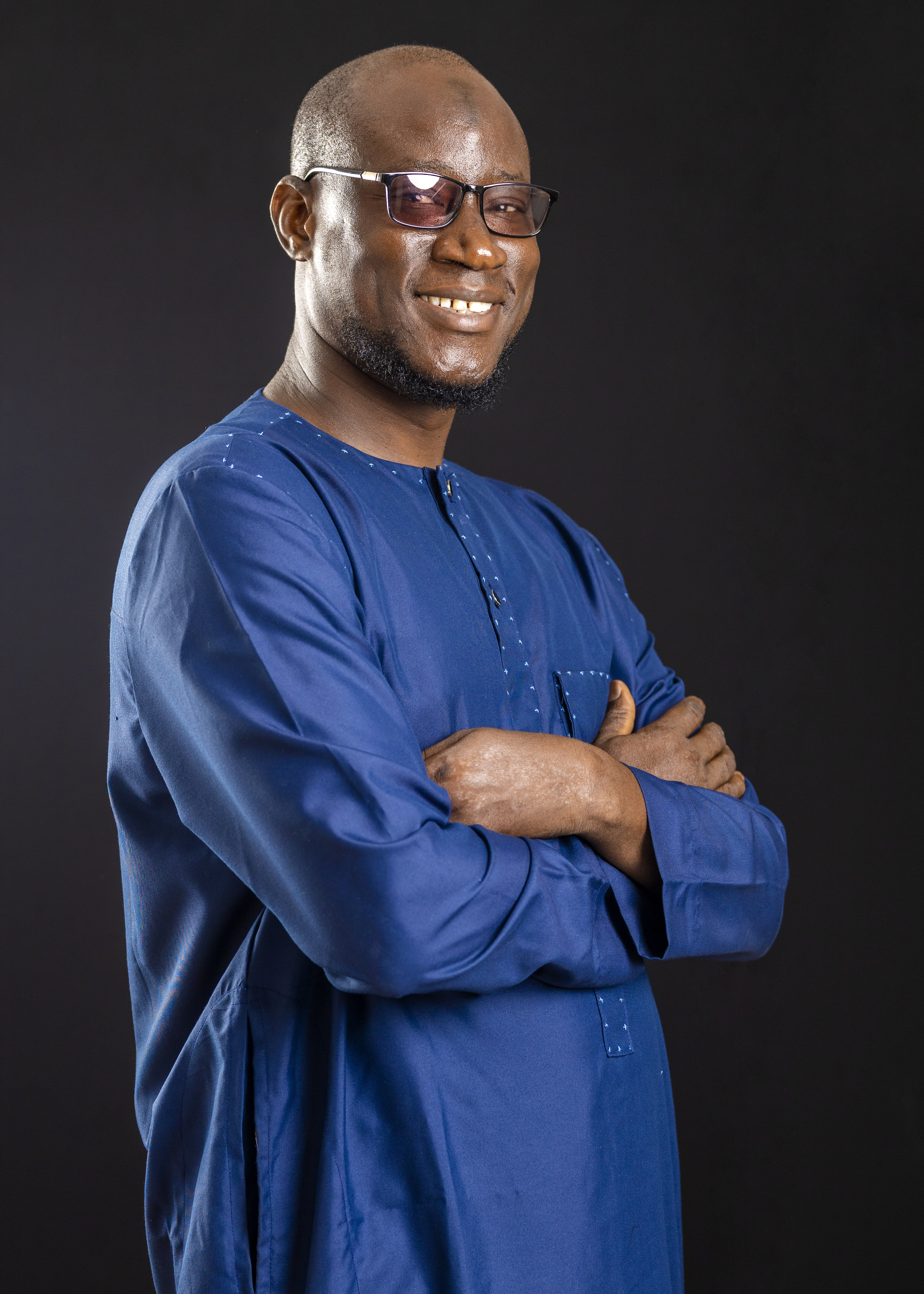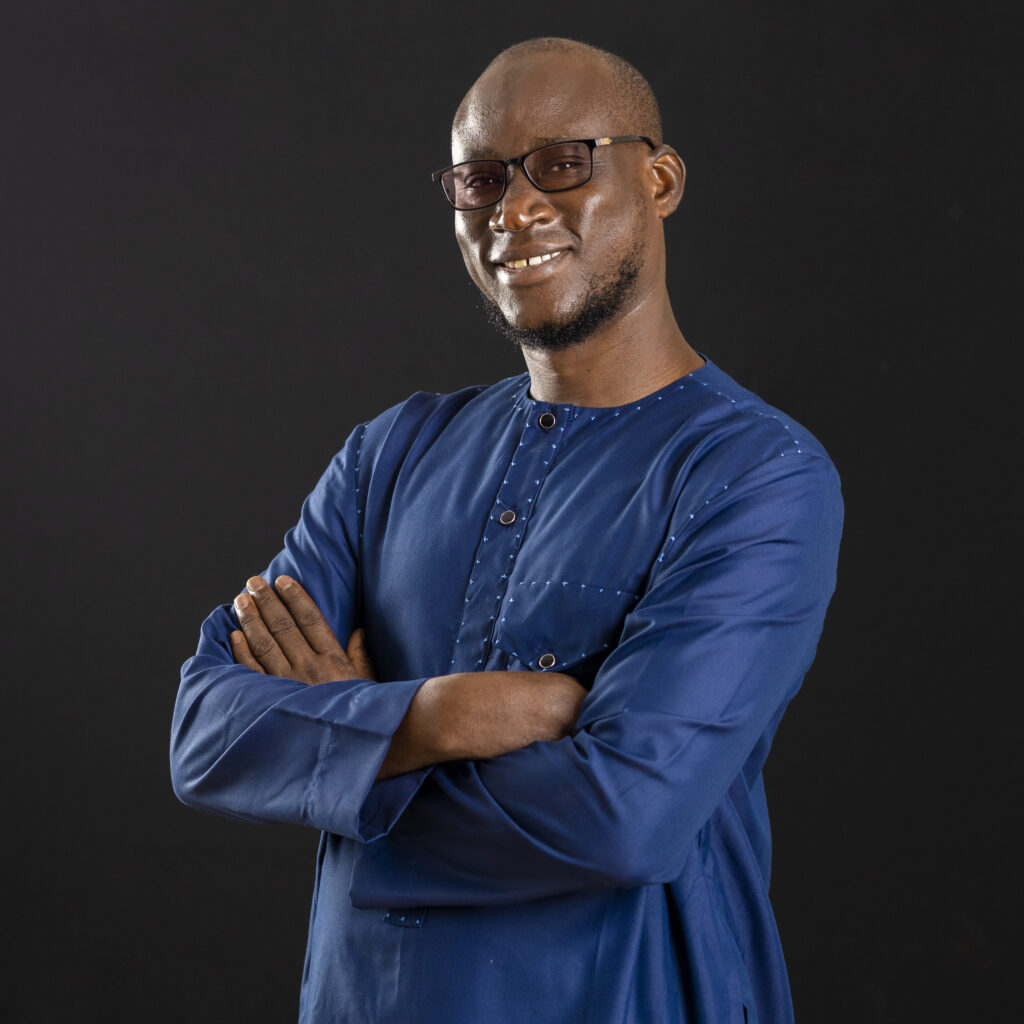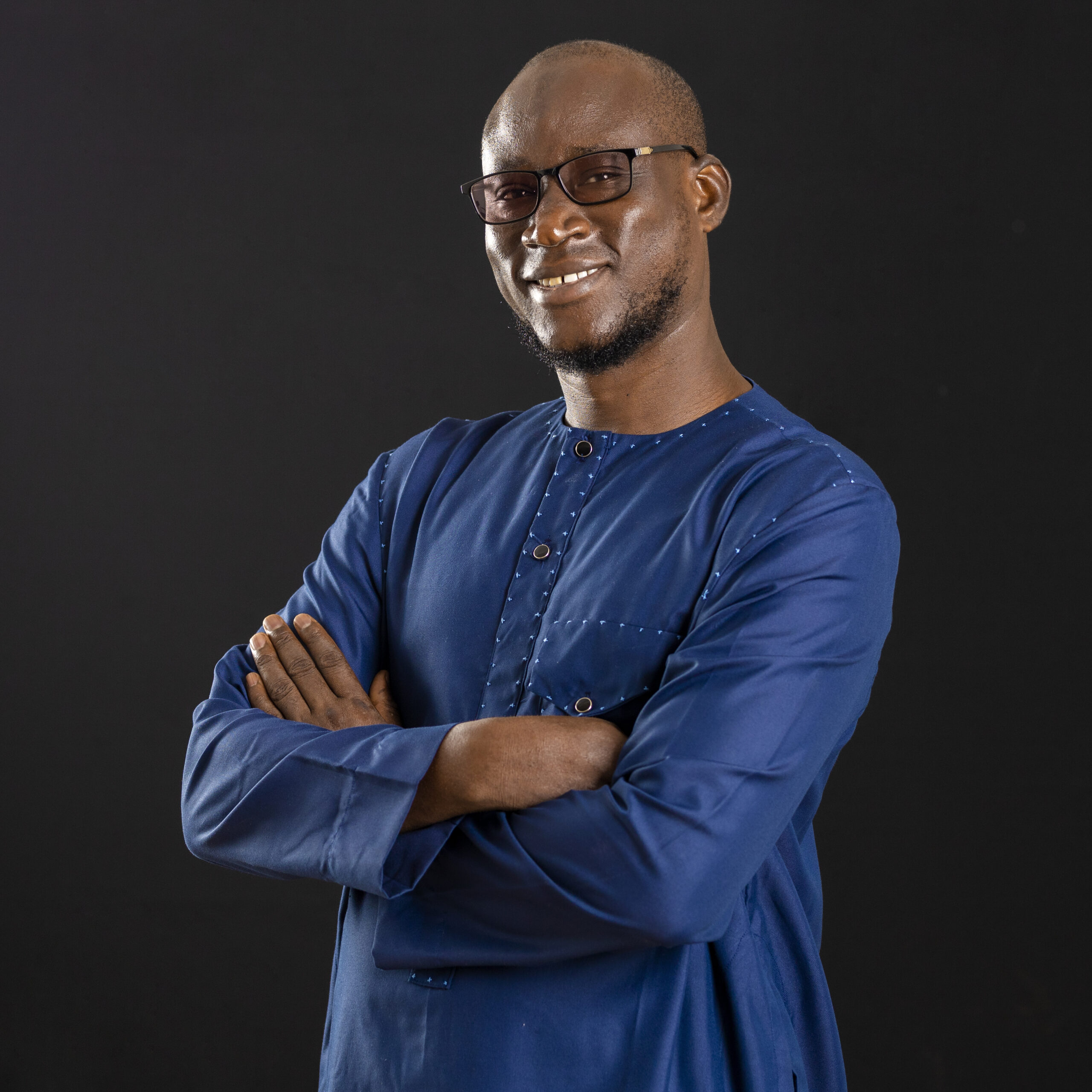How would you like to introduce yourself ?
Well, my name is Moussa Thiao. I am a PhD in Comparative Literature, an ESL/EFL certified teacher, translator and literary critic. As a fellow of the prestigious Fulbright scholarship, I have taught courses in humanities at Indiana University, and Butler University, Indiana, U.S. As a major in postcolonial studies, my fields of interest include the Bildungsroman, African-American and African Diaspora Studies. Currently, I work for DAUST as Director of Academic English Programs, focusing mostly on English Language Teaching, and the management of English programs.

What inspired you to become an English professor, and how did you get started in this career path?
Nothing predisposed me to become a teacher of English. Growing up, no one spoke english in my family or in my entourage. However, I just had high esteem of my English teachers in middle school. They dressed up elegantly, and spoke a language that, to my ears, sounded like music. I started falling in love with the language, listening and reading media broadcast in English, and building connections with people around me who spoke it. As early as my Eighth Grade, I started confessing to my peers about my wish to become a teacher of english.
Throughout High School I used to be the one my peers would turn to when they had a difficult homework. Therefore, I gradually started feeling useful and empowered with a sense of being knowledgeable and in control. However, becoming an English teacher wasn’t a straightforward path. I spent some time teaching in elementary school before I got admission to FASTEF for a one-year training. That’s when I got established as a teacher in the Senegalese public system.
How do you stay current with the latest trends and developments in the field of English Language Teaching?
As the saying goes, « when you stop learning, you should stop teaching.» I have subscribed to the belief that learning is a life long project. As a matter of fact, I always try to stay up-to-date with regard to new trends in my various fields of interest. As far as English Language Teaching is concerned, one can say that we are flooded with resources, both physical and digital. In addition, I participate in national and international seminars and workshops where new trends and best practices are shared. Furthermore, as head of an English department, I work with younger colleagues, who while they expect a lot from my long term experience, they bring me an incredible amount of new techniques and procedures.

What are some of the biggest challenges facing English departments today, and how do you think they can be addressed?
I don’t think I could speak for all English departments. However, my experience with DAUST English department can give an insight into what is happening elsewhere. I have come to realize that the demand in English language learning is way higher than the offer. This poses the problem of human resources ; it is very difficult to find qualified teachers for the super motivated students and professionals looking for training opportunities. Despite the prominence of online learning, many people still prefer in person tutoring. Thus, human resources have got very scarce.
On another scale, many qualified teachers are going into freelancing or into NGOs where salaries are more competitive. Finally, our English department like many others across the country are in need of a qualified personnel. What I see as a sustainable solution is to « digitalize » English programs in order to meet the needs of the local and global markets.
How do you approach teaching literature to students who may not be passionate about the subject?
I actually don’t teach literature ; I use literature as a pretext to teach language skills. Students are inclined to learn when you teach them skills they know they need. Moreover, the fact that English is the language of instruction at DAUST contributes a great deal in fostering learners motivation, especially those in the I.E.P. Teaching English composition at Freshman level is a bit more challenging. Students majoring in engineering don’t feel at first glance why they should take an English composition class. It takes some time before they get fully aware of the impact writing can have in their engineering career.
What are some of your favorite books or authors, and why?
You know I am a major in comparative literature and postcolonial studies. My best authors include Fatou Diome, Ousmane Sembene, Achille Mbembe, Gayatri Spivak and Edward Said. All these authors speak from a postcolonial perspective, and address the power relation between the West and the Rest. Such a perspective helps illucidate geopolitical questions involving western countries and former colonies. Their grounbreaking works represent an eye-opener in the sense that they provide us with various lenses to read and analyze texts from literature, art and cinema.
How do you incorporate technology into your teaching, and what benefits does it offer?
I am a proponent of Blended Learning and the Flipped Classroom. Hence, technology becomes part and parcel of my teaching philosophy. Teaching a language mostly relies on exposure to it, and the internet provides lots of opportunities to get access to English spoken by natives. Smartphones and laptops, more than physical books are on the frontline of my classroom decor. These devices allow students to explore materials at home, and at their own pace ; and give the teacher a chance to use classroom time for more hands-on activities. I actually cannot envision teaching and learning English without the use of social media apps and Learning Management Systems (LMS).
How do you balance the need to maintain academic rigor with the desire to engage students and make the subject matter accessible?
You know teaching is mostly about experience. As a young teacher, you tend to be strict about classroom management and procedures. As you gain experience, you learn to be flexible and more goal-oriented. What I mean by that is, rather than putting too much stress on having students follow instructions and respond accordingly, you allow students the freedom to be creative and have fun while learning. That only happens when teachers understand that students should be at the center of the teaching learning situation. The teacher becomes «a cheerer», and noise becomes part of the classroom ambiance. Hence, rigor stops being associated with the teacher’s personality, but with the skill of being creative and flexible. Finally, the teacher is not the magician, but the one with the magic to stimulate, engage and embark students for the discovery of the the so-called subject matter. In other words, the teacher sets the stage for learning to take place, but s/he is not the sage on the stage.
What advice would you give to students who are considering pursuing a degree in English, and what skills do you think are most important for success in this field?
When somebody has an ambition, they need to persevere, and demonstrate resilience. Language learners need to understand that a language is meant to be spoken primarily, and being proficient in a language means to be fluent in all four skills i.e listening and speaking, reading and writing. A certificate is only material proof of academic achievement, and has little to do with competence. After you complete your training, and enter the professional world, your skills will speak louder than your degree, and your competence in communication (both written and oral) will rise you to the peak, or keep you at the bottom of the pyramid. Consequently, my advice to language learners is to study the language, not just for its musicality, but with midterm and long term goals in mind. Good communication skills are necessary for anyone aspiring to become a leader.
How do you encourage critical thinking and independent thought in your students, and what strategies do you use to promote these skills?
The ultimate objective of learning is problem-solving. And problem solving starts with critical thinking. We don’t learn a language in a vacuum. Language classes address real life situation and current issues, and students learn to respond to what they hear or read. Hence, the notions of critical reading and critical writing that point to the idea of active learning. By proposing problem solving tasks language teachers prompt learners to look at real life situations with a critical eye.
What do you see as the future of the field of English literature, and how do you think it will evolve in the coming years?
Literature is part of our life. In literature we share ideas, views, feelings and visions in various domains. It is not just art for the sake of art as many may think. It is about reflecting on self and other, traveling across time and space, and opening eyes on challenges facing humanity. In short, the building of the most sophisticated technology started with a single word, so to speak. Literature connects people, and from this connection visions are born and implemented. We all know how science-fiction as a literary genre continues to impact the scientific fields and take technological innovations to the next level. Without any fear of blasphemy, I am tempted to say that God created the pen before humankind, and the word before the universe.
If you ask me about the English language or literature written in English, my answer is : it is here not just to stay, but to grow and expand. Everyone wants to learn English, company do business in English, researchers publish in English, international organizations speak English. You don’t speak english ; you become the object in the grammar of a globalizing word.
Tell us about the IEP program and the English Department you are leading at DAUST?
Some people tend to restrict the English department to the I.E.P. In fact, in addition to the I.E.P, academic programs such as English Composition courses, and some elective courses, as well as the D.E.P.P (Daust English Program for Professionals) are under the umbrella of the English department. I can confidently say that in terms of scope, the English department is across the curriculum.
Regarding the I.E.P, it is a unique program in its kind. It trains students with an elementary or lower intermediate level to an intermediate or upper intermediate level for only one semester. Many people are curious about how I.E.P students get to speak English so quickly. To me the answer is simple. As teachers, all we do is to help them become independent learners by helping them build confidence. On the other hand, in the I.E.P learning is project-based and requires a great deal of teamwork. With this approach, not only do students learn with their peers, but also gain confidence, and a sense of being responsible for their own learning. In brief, the IEP is in line with the DAUST hands-on philosophy of Learning by Doing.




